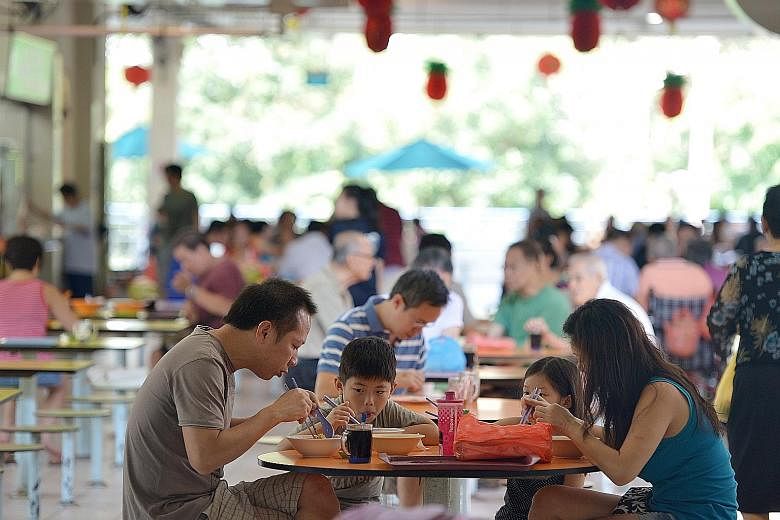Q I am in my 50s and, in the past year, have felt bloated after every meal. It does not matter what type of food I eat. After eating, my stomach looks like I am four months pregnant. It is particularly bad after dinner. Sometimes, it is very painful. How do I stop the bloating?
A Bloating is a very common problem which affects 10 to 30 per cent of healthy adults at any time.
The symptoms can vary - from a mild irritating discomfort to severe disabling pain which can interfere with one's daily activities.
Intestinal gas is typically formed by the fermentation of undigested food, such as fibre, in the colon.
Gas can also be formed from certain food components, such as gluten or sugars in dairy products and fruit. This can occur in a variety of digestive conditions which affect the digestion and absorption of these food components.
Locally, bloating is commonly related to:
•Constipation. The longer the food waste remains in the colon, the more time it has to ferment.
•Eating fatty or oily foods, which can impair stomach and intestine movement.
•Eating too quickly, drinking through a straw or sucking on sweets, which results in more gas entering the intestines.
•Drinking carbonated drinks or eating gassy foods.
•Stress or anxiety.
Bloating can also be due to an underlying digestive disorder.
The more common ones include irritable bowel syndrome, chronic constipation and lactose intolerance. But bloating can also be due to more sinister conditions such as infections, ulcers and cancers.
Hence, one should see a doctor if there are "alarm symptoms" which may indicate the presence of such an underlying medical condition.
These include persistent or severe pain, changes in passing motion, blood in the stool, fever and loss of weight.
One should also see a doctor if one is above 50 years old as age is the biggest risk factor for a serious underlying medical condition.
The doctor will be able to determine whether the bloating is a cause of concern, and will order further tests accordingly.
I would suggest the following simple measures to prevent excessive gas.
•Avoid gassy foods. Locally, the common offending foods include beans, peas, cabbage, broccoli, cauliflower, mushrooms and lentils.
•Avoid carbonated drinks.
•Avoid fatty and oily foods, which may impair intestinal movement.
•Temporarily reduce the intake of high-fibre foods, especially if one takes a lot of fibre. After a one-week break, slowly reintroduce fibre back into the diet to see its effect.
•Eat slowly. Try to take meals when relaxed rather than when stressed.
•Go for a short walk after eating to improve intestine movement.
If these measures do not work, please consider seeing a gastroenterologist.
There are many new advances in the field of digestive diseases that can help patients understand their conditions better.
Beyond the traditional radiological scans and endoscopy, gastroenterologists can offer new tests which are more relevant to bloating as a symptom.
These include tests to look for too much bacteria in the intestines, decreased absorption of specific sugars in the small intestine causing food intolerance, and slow movement of the colon.
Each of these problems may cause bloating as the main symptom, and they are treated in very different ways.
With these new investigations, gastroenterologists will be able to prescribe medication, where appropriate, and to work with dietitians to tailor diet and lifestyle modifications to help relieve the bloating.
Brought to you by

Dr Jarrod Lee
Gastroenterologist at gutCARE Digestive•Liver•Endoscopy Associates at Mount Alvernia Hospital
GOT A PROBLEM?
E-mail your question to sthealth@sph.com.sg.
Specify Ask The Experts as the subject and include your name, age, gender, identity-card number and contact details.

